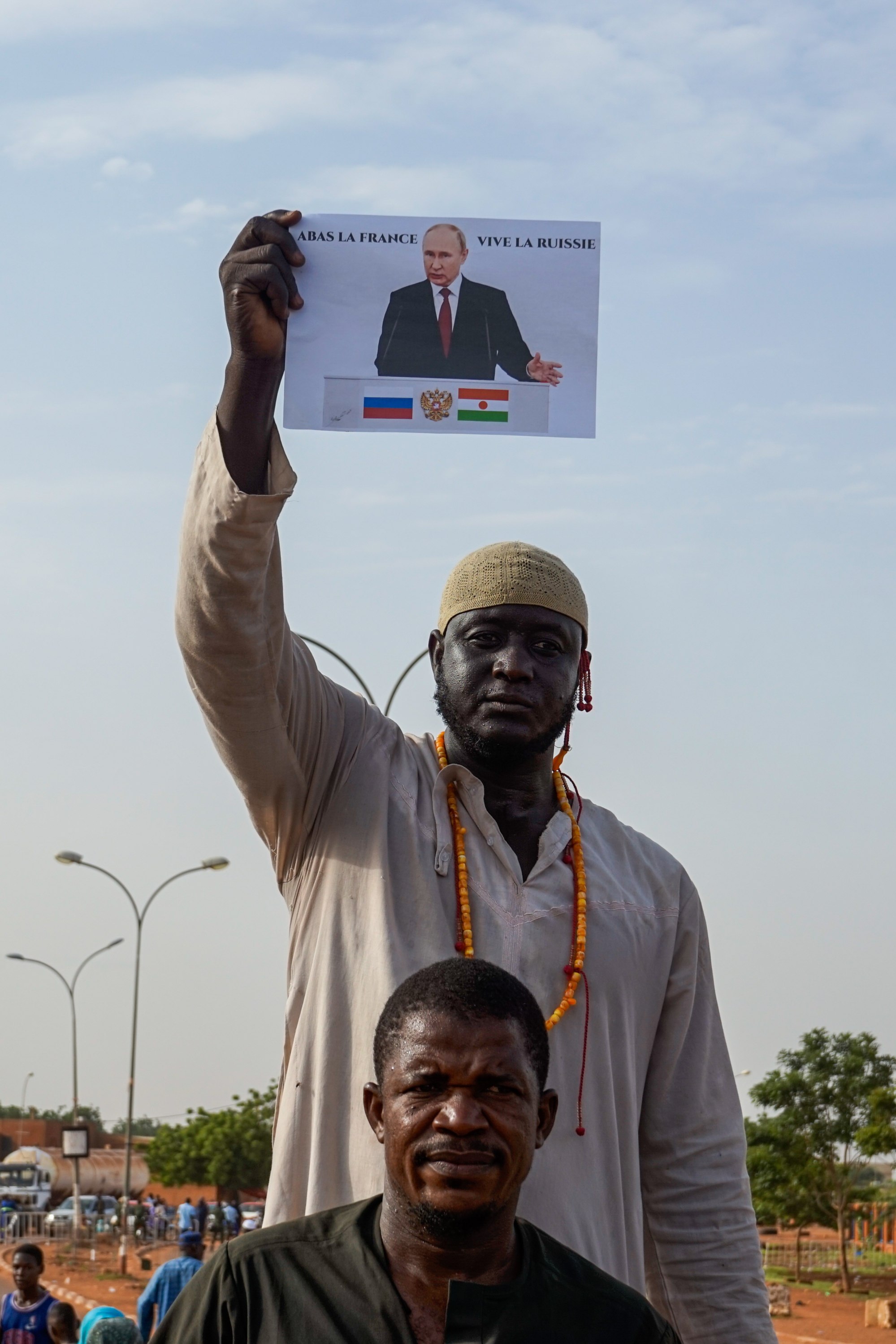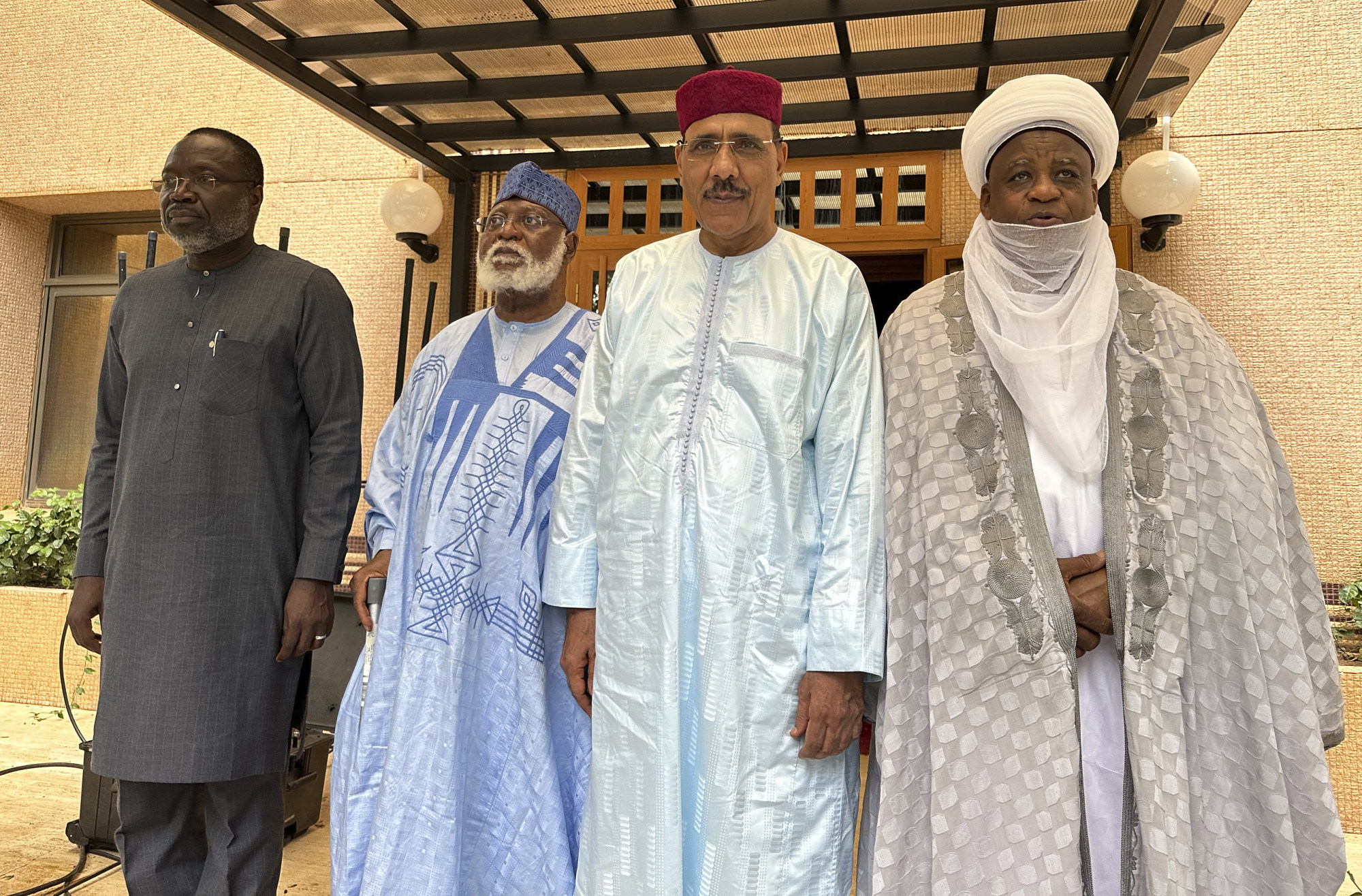
Niger junta orders French, German and Nigerian ambassadors to leave the country
- The junta-appointed foreign ministry said the decision was a response to actions taken by the countries that were ‘contrary to the interests of Niger’
- France has called for President Mohamed Bazoum to be returned to office following his removal
Niger’s military rulers on Friday gave the French, German and Nigerian ambassadors 48 hours to quit the country, amid escalating tension over the threat of military action from the West African bloc Ecowas to reverse the coup.
The ultimatum against the French envoy was quickly rejected by Paris, which repeated that it did not recognise the military rulers’ authority.
The move by the officers now running the country was the latest escalation in deteriorating relations between the new regime in Niamey and several Western powers, as well as the Ecowas (Economic Community of West African States). Nigeria currently holds the presidency of Ecowas.
Paris has repeatedly backed calls by Ecowas for the reinstatement of president Mohamed Bazoum, who was overthrown on July 26.
In separate letters to their respective governments, Niger’s foreign ministry said the French, German and Nigerian envoys should leave the country within 48 hours.
Each letter said it was in response to the refusal of the envoys to respond to an invitation from the ministry for a meeting on Friday and other actions of their respective governments “contrary to the interests of Niger”.
On Friday evening, the French foreign ministry said: “The putschists do not have the authority to make this request, the ambassador’s approval coming solely from the legitimate elected Nigerian authorities.”
It was earlier reported that the US ambassador had also been asked to leave, but Niger’s Foreign Ministry has since told the US government that images of letters circulating online calling for the departure of certain American diplomatic personnel were not issued by the ministry, a US State Department spokesperson said.
“No such request has been made to the US government,” the spokesperson said.
France has 1,500 soldiers based in Niger who had been helping Bazoum in the fight against jihadist forces that have been active in the country for years, while the United States has around a thousand military personnel in the country.

Earlier on Friday, West Africa’s bloc Ecowas urged Niger’s coup leaders to reconsider their position and pushed for a return to civilian rule, with the threat of force still “very much on the table”.
While the generals who ousted Bazoum have called for a three-year transition period, the Economic Community of West African States demands the immediate return to constitutional order.
With delegations shuttling into Niamey, Ecowas said negotiations remained its priority as defence chiefs prepared a standby mission for a possible “legitimate use of force” to restore democracy if needed.
“Even now, it is not too late for the military to reconsider its action and listen to the voice of reason as the regional leaders will not condone a coup d’etat,” Ecowas commission president Omar Alieu Touray told reporters in Abuja.
“The real issue is the determination of the community to halt the spiral of coup d’etats in the region.”
Ecowas has already applied sanctions against Niger to pressure the new regime.
The Niger coup has heightened tensions in the Sahel region, where three other governments have fallen to military rebellions since 2020, and jihadists control swathes of territory.
Ecowas leaders are already negotiating with military administrations in Mali, Burkina Faso and Guinea who are all working towards transitions to democracy after their own coups.
After initially balking, Niger’s new rulers have said they remain open to negotiations.
But they have sent mixed messages, including a threat to charge Bazoum – who remains detained at the official residence with his family – with treason.

Niger’s military leaders have also warned against any intervention, accusing Ecowas of preparing an occupying force in league with an unnamed foreign country.
Niger on Thursday agreed with the regimes in neighbouring Mali and Burkina Faso to let their troops into its territory in case of an aggression.
But Touray dismissed plans for Ecowas “declaring war” or an “invasion” of Niger, insisting the standby mission would be a legitimate force allowed under Ecowas statutes agreed by members.
“The instruments include the use of force. So it is very much on the table, as are other measures we are working on,” he said.
“If peaceful means fail, Ecowas cannot just fold its hands.”
Ecowas has intervened militarily in past crises, including in civil wars. Few details of the new standby force have emerged.
But preparations for any possible use of military force in Niger are risky and already face political resistance in northern Nigeria, a key player in Ecowas and the region.
Niger’s northern neighbour Algeria has also warned of disastrous consequences for the region from an intervention.
Foreign Minister Ahmed Attaf this week toured West African countries to try to find a solution to a crisis in which Algiers firmly opposes any military option.
“There is a time for everything and we are currently in the time of finding peaceful solutions,” he said on a visit to Benin.
“Let’s put all our imagination into giving every chance to a political solution.”
Additional reporting by Reuters

.png?itok=arIb17P0)